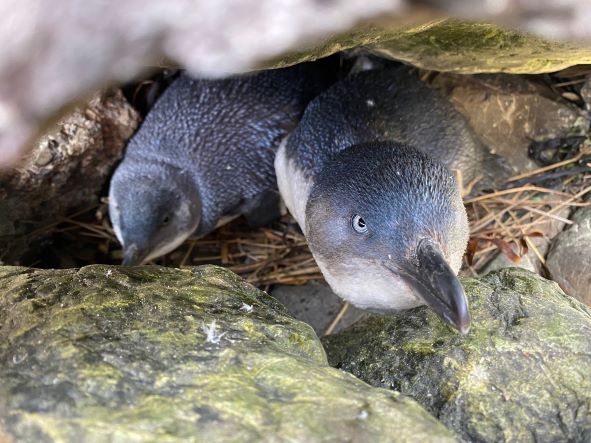Protecting our Environment
Toitu te marae a Tane, Toitu te marae a Tangaroa, Toitu te tangata
If the land is well, and the sea is well, the people will thrive
We recognise that to create a thriving port for our community and our customers, we need to be good custodians of the environment, and to consider the environmental impact of all that we plan and do.
At CentrePort we take our environmental responsibilities seriously. Our approach to environmental protection is based on international standards and our environmental management system is Toitū enviromark certified.
Ways we are protecting the environment
We monitor a range of areas where we might have an impact on the environment including noise levels, stormwater discharge into the harbour, and the production of dust and debris in our operational areas.
We partner with mana whenua and work with technical experts, agencies and regulators such as the Department of Conservation, and members of the community to assess and address environmental problems and risks.
We’ve created ways to better manage our environment including:
- new approaches to reducing noise
- protecting harbour water quality through reducing contaminated stormwater discharge
- managing dust and debris in our log yards with purpose-built machinery
- reducing the amount of waste we produce and recycling and repurposing waste materials
- playing our part to prevent air pollution from ships by requiring all vessels visiting Te Whanganui-a-Tara to follow the International Maritime Organisation’s MARPOL VI regulations.
Exhaust Gas cleaning systems (Ship Scrubbers)
We request that ships using scrubbers avoid discharging scrubber washwater, by using alternative options such as:
- preparing for entry into New Zealand waters by carrying compliant low sulphur fuel they can use when operating in sensitive environments, as identified by the relevant regional authorities. Fuel change overs need to follow ship operator procedures to ensure safety and preferably be conducted outside of NZ territorial waters.
- operating closed loop scrubbers in zero discharge mode, and retaining any waste sludge on board until they are able to dispose of it at the next available port facility
- discharging any open loop scrubber washwater outside territorial waters.
If ships need further information they should contact the relevant regional harbour master.
The Ministry for the Environment regulates discharges to the marine environment, and precautionary guidance can be found through the link below.

Protecting the biodiversity of Te Whanganui-a-Tara
Te Whanganui-a-Tara – Wellington Harbour is our home and a special place. We share it with people and marine life such as birds, marine mammals and fish and we have an important role to protect and enhance it.